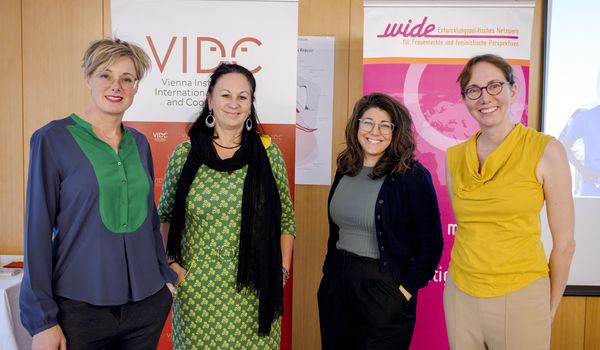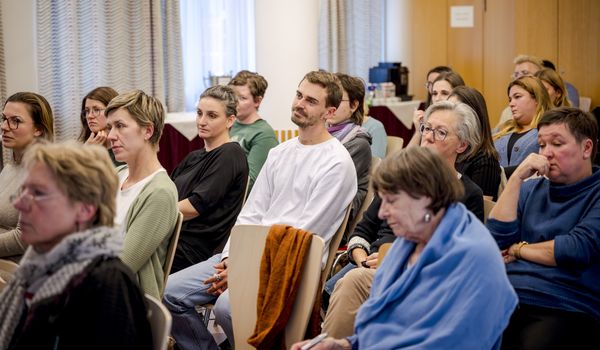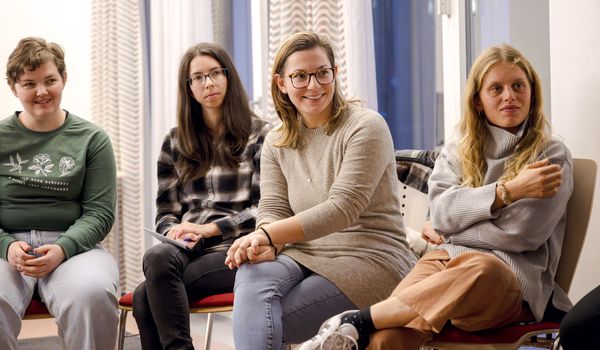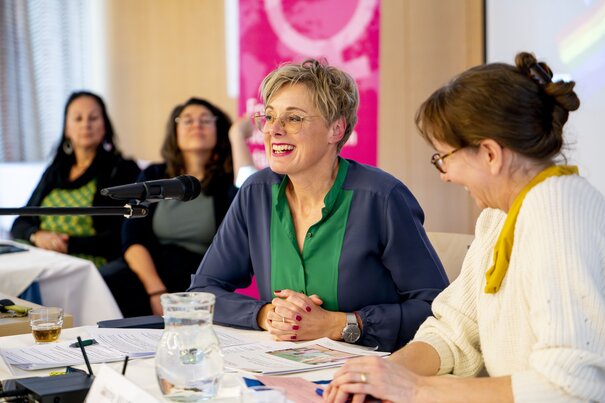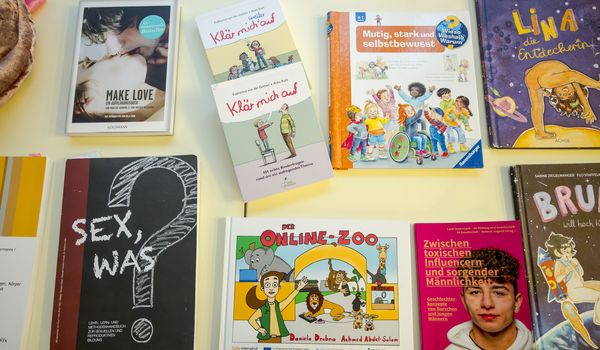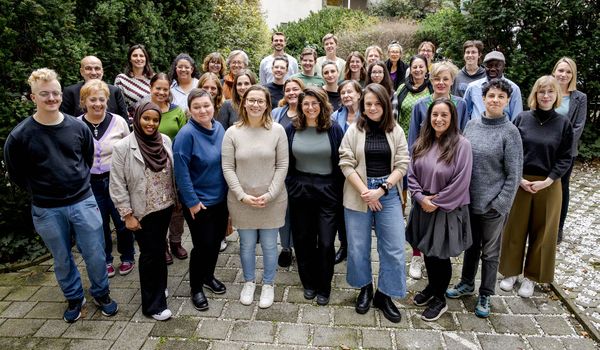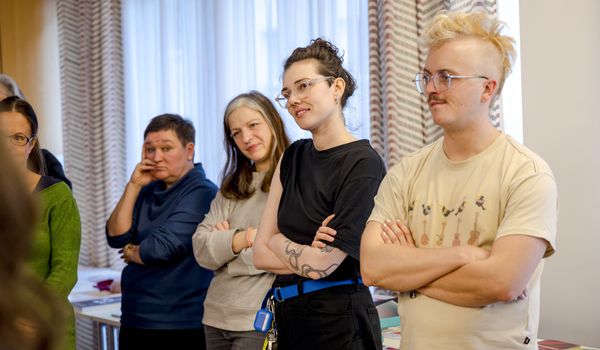Comprehensive sexuality education contributes to self-determination over the body and one's own lifestyle. It strengthens important skills relating to sexual behavior and family planning, sexual and reproductive health and rights (SRHR). It also has a preventative effect in regard to sexual violence. In addition, sexual education helps to break down gender stereotypes and promotes acceptance of gender diversity and different sexual orientations, which could lead to a more open-minded and inclusive society. Although the effects of age-appropriate sexuality education on a personal and societal level are consistently positive, the topic is often met with great resistance both nationally and internationally.
Sexuality education in the school context and the current situation in Austria

Sexuality education is treated as a ‘comprehensive topic’ in the legislation and can be integrated into several subjects according to the curriculum. Teachers have individual, didactic freedom as to when and in what form the content is offered. However, they must be guided by the 2015 policy decree issued by the Ministry of Education, Science and Research, which is considered progressive by sex educators. According to Tamara Felbinger, the biggest challenges are the lack of resources and financial support for the implementation of the said policy decree (2015) and the lack of basic sexuality education training for teachers. Basic education and further training for teachers play a key role in implementing the teaching principle of sexuality education. However, the problem with this is that teachers decide individually whether or not to take advantage of sexuality education training. In addition, external sexuality education programs for schools are rare and only provided by private providers. One of the main points of criticism is that there is no nationwide quality assurance of sexuality education offers, which includes the involvement and expertise of practicing sex educators.
The Ministry for Education, Science and Research is currently working on a so-called accreditation procedure that is intended to evaluate sexuality education providers using an assessment form. However, it has been criticized that the quality assurance of the effectively conveyed content is only to take place via the feedback loop, through feedback from schools and participants. Only if a program is frequently rated poorly does the provider have to undergo a further assessment. Insufficient quality assurance can also propagate the opposite of a diverse and inclusive society, as the TeenSTAR case study shows.
Regarding the changes, the WHO states in an urgent report (2024) that condom use among sexually active adolescents has fallen dramatically, leading to a high risk of sexually transmitted diseases, unwanted pregnancies and unsafe abortions. The first Austrian Contraception Report (2024) by the Ministry of Social Affairs, Health, Care and Consumer Protection also speaks of an enormous gender divide in contraception costs: almost 50% of women bear the costs alone. Free contraceptive services embedded in a broad-based campaign and the nationwide expansion of sexuality education programs would be effective measures here.
achtung°liebe – sexuality education workshops for young people by students, a program for school classes and supervised institutions, was mentioned as an example of good practice. The special feature of the project is the post-peer-to-peer approach, which is close to the reality of young people.
Good practice from East and West Africa: sexuality education in the humanitarian-development-peace nexus

In her keynote speech, Ines Kohl explored the question of what Austria can learn from THE RAIN WORKERS' sexual education program in East and West Africa. In this context, the so-called ‘treetings’ (meetings under a tree) were mentioned as an informal space for constant dialogue about sexual health. There is nothing comparable in Austria. In regard to the sustainability of THE RAIN WORKERS' educational work, a broad network of multipliers in the individual communities has proven its worth.
One particularly exciting aspect was the exchange on the role of hierarchical social structures and their influence on the promotion of sexuality education and health. Ines Kohl emphasized how important it is to strategically involve existing authorities or gatekeepers – village elders and religious leaders – in order to improve access to SRHR in communities.
Important lessons were also learnt for Austria. While religious institutions are often perceived as an obstacle to progress in the field of sexual education, they can also act as valuable partners in breaking social taboos and promoting dialogue if approached in a targeted, sensitive and respectful manner.
The Girls Empowerment Camps in Kenya, which make a major contribution to the sustainable fight against Female Genital Mutilation (FGM/C) through education on FGM/C and sexuality for girls/boys and through community sensitization, were particularly well received.
The participants brought up similar examples from Austria that are hardly visible in the media: the program offered by the Vienna Children's University Wien and the Girls' Week run by the Romano Centro. Media education such as the UNICEF-sponsored platform LAAHA, which provides anonymously information on sexuality and online security in six languages (to be expanded to 20), was also identified as good practice.
Demands on sexuality education in Austria and in the field of Austria’s International Cooperation (IC)

Sexuality education should be integrated more systematically into the basic training of teachers and into the school curricula, as 1-2 workshops lasting 3-4 hours are insufficient. In addition, a parent education program for sexuality education as well as for media and pornography competence is needed. Three approaches have proven successful in practice: lifelong learning, multipliers, and a (post-)peer-to-peer approach. Long-term funding is required to implement the measures. Another important takeaway is to make sexuality education services available online in order to reach young people in their socialization spaces. Here, the program Auf Klo of German Public Service Broadcasters (ARD/ZDF) was positively emphasized. A similar program by the Austrian Broadcasting Cooperation (ORF) would be a meaningful investment in the future. Another ongoing demand made by the SRHR working group is to anchor SRHR (including sexuality education) as a cross-cutting issue in International Cooperation due to its key role in development. To achieve this goal, moderator Nadja Schuster summarized that ongoing lobbying and cooperation/pooling of resources in the areas of education, gender equality, healthcare and development cooperation are key and will be further promoted by the SRHR working group.


